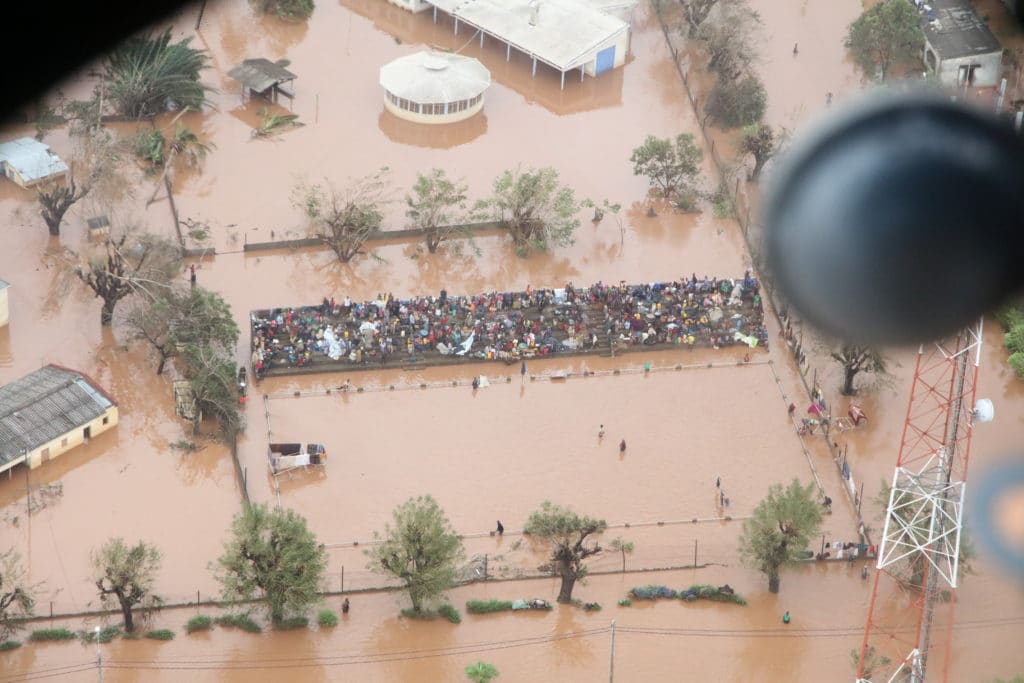Local stories in Mozambique
- Case studies from IPCC authors
- Conversation shops in Senegal
- Talking your audience’s language in Indonesia
- Energising analogies in Ukraine
- Flooding conversations in Colombia
- The bigger picture in Japan
- Local stories in Mozambique
- Informing policy in the Caribbean
- Stitching in detail in India
- Connecting personally in Argentina
- Neighbourhood interest in the USA
- Unpacking the science in France
This case study is part of a set of case studies commissioned by the IPCC WGI TSU (Intergovernmental Panel on Climate Change, Working Group I Technical Support Unit) and collected by Climate Outreach.
Dr Izidine Pinto shares how rich exchanges have emerged discussing local impacts with university students back in his home-town.

Dr Izidine Pinto, University of Cape Town – Author for Sixth Assessment Report, Climate Change 2021: The Physical Science Basis, @izpinto @uct.ac.za – Facebook, @UCT_news – Twitter, @University-of-cape-town – Linkedin, UCTSouthAfrica – Youtube
“I spoke with final year university students at Eduardo Mondlane University in my home town of Quelimane, Mozambique in early March 2020, as the COVID-19 pandemic was spreading across the world.
It was great to return to the place I grew up, and I really enjoyed the experience of talking about science in Portuguese for a change, given that I learned about climate science in English.
I gave a seminar on the climate system and climate change, from the global impacts down to the local, and presented a case study from the region. I used local stories, such as how climate change is affecting Quirimbas National Park and the Primeiras and Segundas Archipelago, which are nearby places that the students are familiar with. I explained how climate extremes have changed over time, and might change more dramatically if adaptation and mitigation strategies are not implemented.
By using local stories, I was able to make the problems resonate with them as they hit close to home for the students. They felt inclined to share their personal experiences of weather and climate and ask more questions about their city. This led to an especially fruitful discussion on the context and consequences of the recent deadly tropical cyclone Idai that affected Mozambique.

People take refuge on the stand of a sports ground, following flooding caused by Cyclone Idai in Mozambique. Photo credit: World Vision
I also talked about the impact of the COVID-19 virus on air quality due to the halt of industries and transportations networks. This was to make climate change more current and to demonstrate how even short-term reductions in the use of fossil fuels can improve air quality. I thoroughly enjoyed speaking with students at Eduardo Mondlane University, and I hope I have created relevant awareness and interest, and managed to fuel an ongoing discussion on climate change in their region and beyond.”
This case study is a great example of putting the following principles for effective public engagement into practice.
- Principle 1: Be a confident communicator (see Handbook page 6)
- Principle 2: Talk about the real world, not abstract ideas (see Handbook page 8)
- Principle 3: Connect with what matters to your audience (see Handbook page 11)
Find out more about the six principles in our Communications Handbook for IPCC scientists and accompanying webinar.

If you would like to contribute a case study of your public engagement experiences as an IPCC author, we would love to hear from you. Please share your stories with the WGI Technical Support Unit directly.
Reports & guides
Sign up to our newsletter
Thank you for signing up to our newsletter
You should receive a welcome email shortly.
If you do not receive it, please check your spam folder, and mark as 'Not Spam' so our future newsletters go straight to your inbox.
